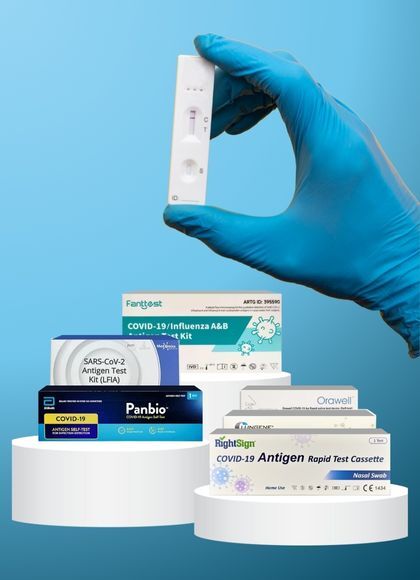Pets, especially dogs and cats, are crucial for our daily lives, and their health is becoming more important to pet owners. Just like us, a dog's immune system mainly resides in its gut, which is the biggest immune organ containing about 70% of all immune cells. Therefore, it's vital to keep your dog's digestive system healthy to ensure they remain lively, active, and live a long, healthy life.
What are Probiotics for Dogs?
ISAPP defines probiotics as “Substrates that are selectively utilized by host microorganisms conferring a health benefit.” Simply put, they are food for the beneficial microbes that live on or in our pet.
Probiotics have gained popularity in recent years, being added to pet foods and supplements to support intestinal health in dogs. By administering probiotics, pet owners can improve the balance of the intestinal microbiota, suppress inflammation, enhance immune function, and alleviate intestinal disorders in their pet dogs.
Benefits of Probiotics for Dogs:
1.Support Immune System
Probiotics for dogs are essential for supporting their immunity because they promote the growth of beneficial bacteria in your dog's gut. These bacteria thrive on fiber, which your dog can't digest, and produce short chain fatty acids (SCFAs) as a result. [Source]
These SCFAs play a vital role in your dog's health and immune function as they:
- Nourish friendly bacteria, keeping harmful ones in check.
- Help form a protective mucus layer in the gut, acting as a barrier against toxins and allergens.
- Contribute to maintaining gut integrity, reducing the risk of leaky gut and inflammation.
- Aid in the absorption of essential nutrients and the production of vitamins.
- Regulate gut pH, produce enzymes, and even influence your dog's mood by producing serotonin
2. Support Digestive System
Probiotics, which are good bacteria found in supplements or certain foods, can make a dog's digestion and poop better. Research shows they do this by changing the types of bacteria in the gut and how they work. Studies shows that some probiotics were shown to:
- increase good bacteria like Lactobacillus and decrease harmful ones like Turicibacter and Blautia [Source]
- help produce more butyrate, a substance that keeps the gut healthy [Source]
- increase levels of a gut-protective substance called IgA [Source]
However, it's essential to note that not all probiotics have the same effect, and in some cases, they may not change gut bacteria or immune responses in dogs.
3. Food and environmental allergies
Studies have shown that certain species of probiotics may have specific benefits for dogs. For example, certain strains of Lactobacillus and Bifidobacterium can provide relief from diarrhea and food allergies. Some Bacillus species can also support the immune response, and Enterococcus faecium has been shown to shorten the course of diarrhea in dogs. [Source]
4. Alleviates Anxiety
Recent studies have found a link between the bacteria living in a dog's gut and their behavior. This means that what's in their tummy can affect how they feel and act. By giving dogs certain helpful bacteria, called probiotics, their anxiety levels might go down.
A study conducted on 24 Labrador retrievers with anxiety problems showed that the probiotic Bifidobacterium longum BL999 appeared to have an anxiolytic (anxiety reducing) drug effect on anxious dogs. [Source]
5. Helps with various health concerns:
Probiotics may also help with other conditions, including:
- Skin disorders
- Food allergies
- Bad breath
- Obesity
- Immune disorders
- Liver disease
- Intestinal inflammation
- Irritable bowel syndrome
- Urinary tract infections
FAQs
Can you give a dog probiotics for humans?
While it might be tempting to give your dog probiotics intended for humans, it's not recommended without consulting a veterinarian.
Dogs have different digestive systems and microbiomes compared to humans, so the strains and dosage of probiotics that benefit humans may not be suitable or effective for dogs. Additionally, some probiotic supplements for humans may contain ingredients or strains that are harmful to dogs. There's also the risk of giving your dog too much of a specific strain, leading to gastrointestinal upset or other adverse effects.
To ensure the health and safety of your dog, it's best to consult with a veterinarian who can recommend probiotics specifically formulated for canine use.
Are human probiotics safe for dogs?
Human probiotics are not necessarily safe for dogs. Dogs have their own unique microbiomes and dietary requirements, and what's beneficial for humans may not be suitable for dogs. Some strains of probiotics that are beneficial for humans could potentially cause harm to dogs or may not provide any benefits at all.
Additionally, human probiotic supplements may contain ingredients that are toxic to dogs. It's essential to consult with a veterinarian before giving your dog any probiotic supplements to ensure that they are safe and appropriate for your pet's specific needs.













